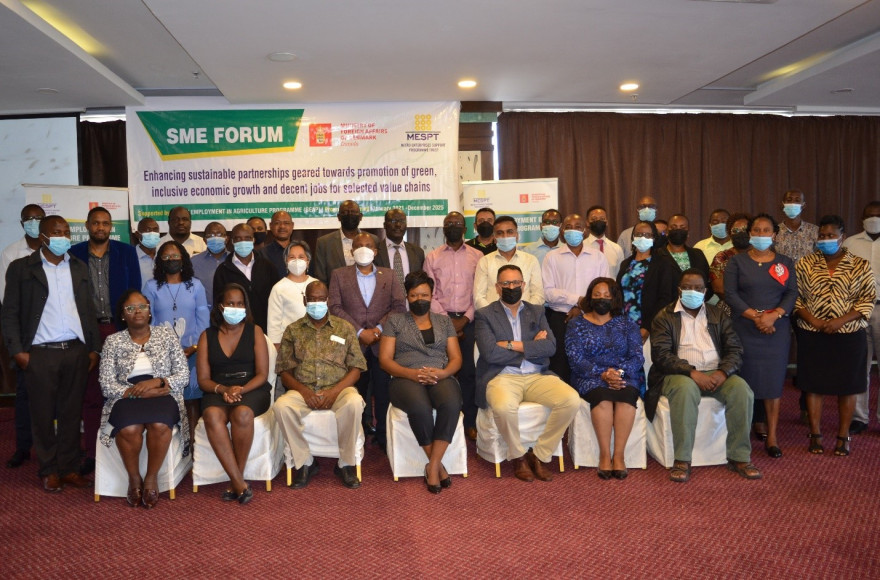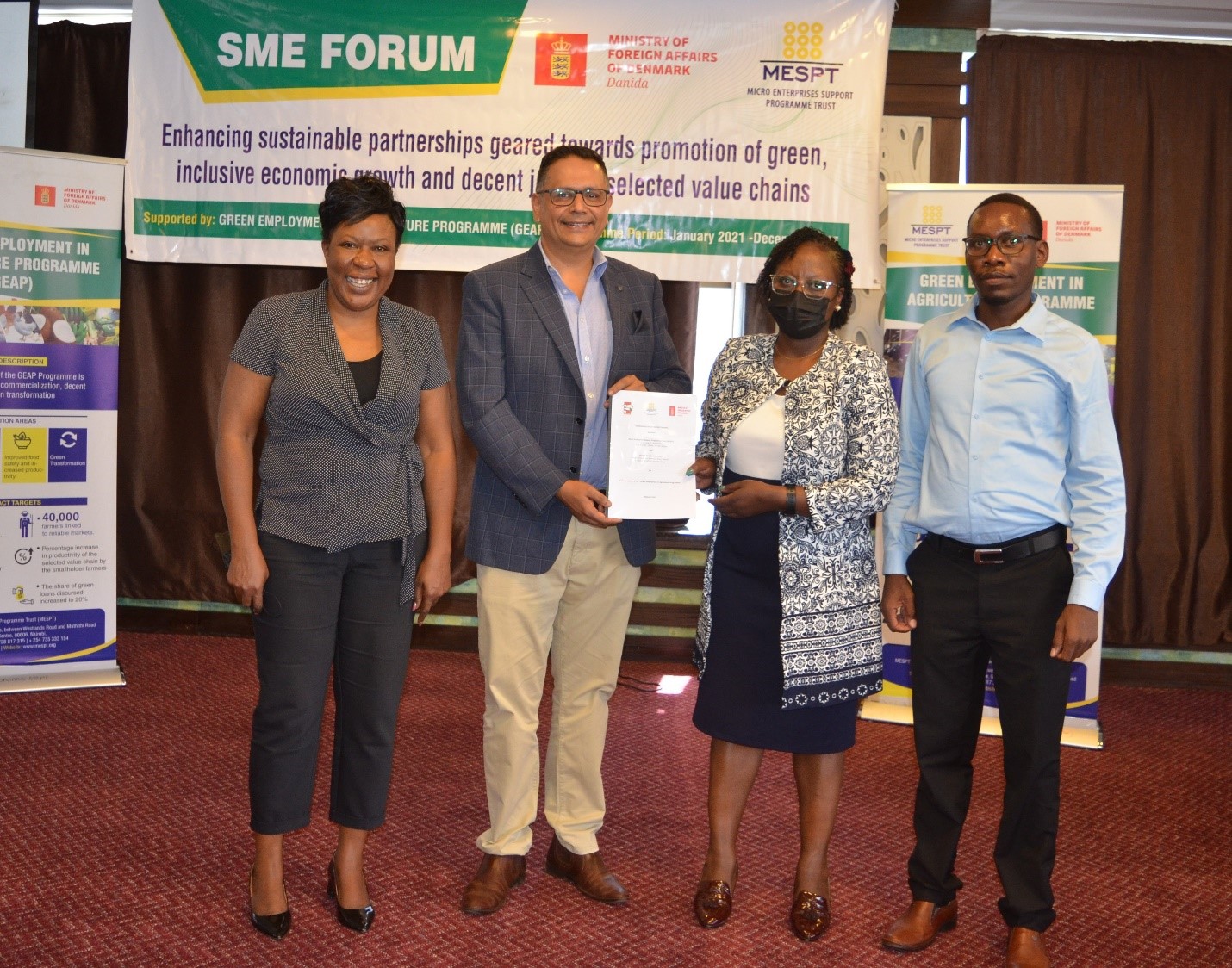About MESPT
- Micro Enterprises Support Programme Trust, Tausi Lane 01, Westlands
- Nairobi P.O Box 187 - 00606 Kenya
- +254 722 207905 / 735 333154
- info@mespt.org


MESPT has facilitated value chain development activities for the last 18 years, journeying with key value chain actors to realize significant contribution in the Kenyan agriculture sector. One of the key successes has been the anchoring on sustainable integration of Kenya’s small holder farmers in domestic, regional, and global economy. The journey to economy-wide transformation of agriculture in Kenya cannot be articulated without factoring the Agri SMEs who provide market linkages (often encompass capacity development on quality standards, GAP, food safety among other value chain specific requirements) to smallholder farmers. Their resilience and strive to become better has directly contributed towards economic transformation of the smallholder farmers and by extension to rural development.
Cognizant of this, the Trust has over the years deliberately engaged agri SMEs for partnership with its programmes. This endeavor not only accelerates outreach and impact in the targeted value chains but also delivers on expected targets. The contribution of SMEs in job creation, integration of social and market standards, poverty alleviation and rural development is significant; they are the engines of our economy. In the age of globalization, this contribution can only be more pronounced in influencing significant economy-wide transformation.
Consequently, in our implementation of the Green Employment in Agriculture Programme (GEAP): 2021 – 2025 funded by Danida, we are keen on a strategic symbiotic Agri SME engagement that will contribute significantly to the programmes strategic outcome of accelerated decent employment creation, improved competitiveness of the selected value chains, green transformation, and inclusive growth.

Following this, MESPT undertook a profiling and Business Development (BDS) needs assessment exercise on the targeted agri enterprises. The aim was to determine the suitability of business models in relation to the expected programme outcome and to identify underlying BDS gaps in their business. This processes broadly looked at the following key business metrics: Business Smallholder farmers and regional outreach; Job creation capacities; Business Profitability to growth of capacity; Market demand and Supply; Green Transformation practices; Food Safety and Standards; Women and Youth Inclusion Prospects. 39 out of 45 SMEs were profiled and assessed drawn from the 12 target counties that GEAP is being implemented, (Makueni, Machakos, Kilifi, Kwale, Nyandarua, Nakuru, Trans Nzoia, Uasin Gishu, Bungoma, Kakamega, Siaya and Kisii) and in selected GEAP value chains that includes Dairy, Export Vegetables, Mango, Coconut, Avocado, Aquaculture, Indigenous Poultry, Bananas, Cassava, Moringa and Pineapple.

Following the recommendation of the SME assessment, a selection in reference to GEAP expected outcome was carried out where 23 SMEs across the target value chains were identified for collaboration with GEAP programme in 2022. The targeted Agri SMEs under GEAP programme will be able to link additional 40,000 smallholder farmers to local and export markets. On the SME assessment report, the job creation prospect is expected to generate the 3,000 jobs targeted by GEAP, as well as attain the 17% increment of their annual revenue to attain the planned GEAP Ksh 6 billion will be contributed by linkages of the 40,000 Smallholder farmers to the markets. This is possible because most SMEs in Export business have established internal business management systems, effective Marketing and Food Safety Strategy. The main challenge however is inadequate supply of quality produce from targeted smallholders and promoting green transformation activities which MESPT through GEAP programme will aim at addressing.